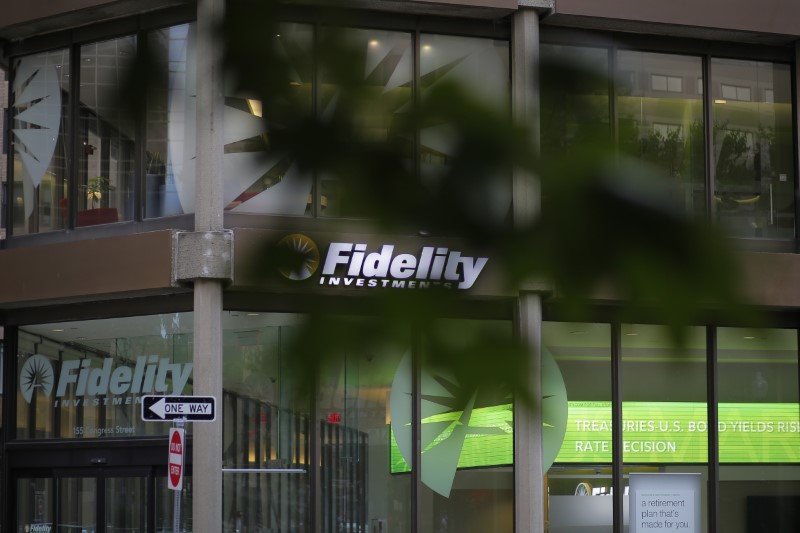 © Reuters. A sign marks a Fidelity Investments office in Boston
© Reuters. A sign marks a Fidelity Investments office in BostonBy Trevor Hunnicutt
NEW YORK (Reuters) – Major Tesla (NASDAQ:) Inc shareholder, Fidelity Investments, cut its stake in the electric automaker by 21 percent during the second quarter, before Chief Executive Elon Musk announced his plan to take the company private earlier this month.
FMR LLC, the Boston-based manager of the Fidelity funds, sold 3 million shares, or a fifth of its stake, and held under 11.2 million shares by June 30, it said in a filing with the U.S. Securities and Exchange Commission (SEC) late on Friday.
The company remains one of Tesla’s top ten shareholders, with shares worth about $4 billion, according to Thomson Reuters data on Monday.
A Fidelity spokeswoman and a representative of Tesla did not immediately respond to a request for comment.
It was not clear why Fidelity reduced its holdings or whether it would be interested in supporting a move by the company to go private.
Also during the second quarter, fund managers at the company disclosed a new, near-$30 million stake in a type of bond issued by Tesla that can convert to stock under certain conditions in the future.
Fidelity’s move to cut its stake in Tesla occurred before the surprise move by Musk to seek investors’ help to take the company private.
Musk now faces investor lawsuits claiming securities fraud and a reported SEC probe after sending a tweet on August 7 that there was “funding secured” to take Tesla private. Since then, no investors publicly confirmed their involvement.
Quarterly disclosures of fund managers’ stock holdings, in what are known as 13F filings with the U.S. SEC, are one of the few public ways of tracking which companies many investors are buying and selling.
But the disclosures come 45 days after the end of each quarter and may not reflect current positions.
Fusion Media or anyone involved with Fusion Media will not accept any liability for loss or damage as a result of reliance on the information including data, quotes, charts and buy/sell signals contained within this website. Please be fully informed regarding the risks and costs associated with trading the financial markets, it is one of the riskiest investment forms possible.
Source: Investing.com




























